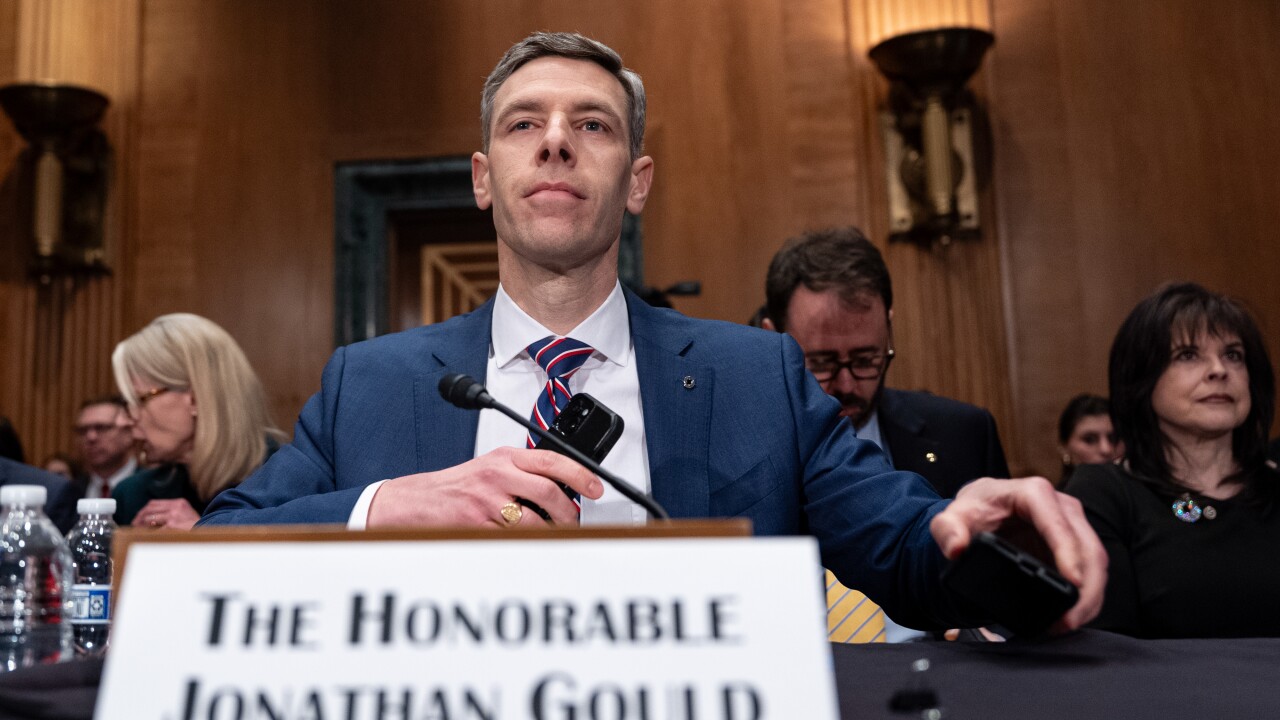
UPDATE: This article includes additional information from analyst notes and KeyCorp's earnings call.
On Tuesday, the parent company of
At the same time, average loans are expected to decline 2% to 5% for the full year, with year-end 2025 loan balances predicted to come in flat compared with where they ended in 2024, which was $104.7 billion, executives told analysts during the company's fourth-quarter earnings call.
While commercial loans stabilized in the fourth quarter,
Commercial loan demand is a key factor in hitting the 20% net interest income growth target. But even if that sort of growth doesn't materialize, the company has other ways to meet that target, such as a pickup from a recent securities-book repositioning as well as fixed-asset repricing.
"If we can grow commercial loans as planned, we will be in good shape relative to that 20%," Chief Financial Officer Clark Khayat said on the call. If not, "we'll have other levers to pull."
A surge in net interest income would be a huge plus for
For the fourth quarter,
Toronto-based Scotiabank injected $821 million of new capital into
The swing into negative territory —
Revenue for the fourth quarter was $865 million, down nearly 44% from the year-ago period.
The outlook for net interest income was down slightly from the street's expectations, some analysts said in research notes. Some estimates called for growth of 22% year-over-year.
By early afternoon, the decrease had eased somewhat to 4.5%.
CEO Chris Gorman spent part of the call talking about the company's plans to keep investing in people and technology in 2025.
In November, the company
Total noninterest expenses for 2025 are projected to rise 3% to 5% year over year. In the fourth quarter, noninterest expenses were $1.2 billion, down 10.4% from the same quarter in 2023. The decrease reflected certain charges in the year-ago period that did not recur in the most recent period, including a special Federal Deposit Insurance Corp. fee and efficiency-related expenses.
The expense forecast "was slightly higher than expected," analyst Brian Foran of Truist Securities said in a research note.
Erika Najarian, an analyst at UBS Securities, was curious about whether there was "an appetite" at
Chris Gorman and four other high-ranking KeyCorp executives have been granted a combined $16.7 million in performance-based equity awards that will vest in two years, as long as the Cleveland-based company meets certain capital requirements and earnings goals.
"Given you have all this capital and given that there's so much in your balance sheet that's a natural cure to your net interest income I'm wondering [if] there's an appetite … [for] using this capital for … really forward thinking on growth?"
Gorman largely reiterated comments he made earlier on the call, saying
One question that popped up was about Gorman's recent retention bonus.
Following the completion of Scotiabank's investment, Gorman and four other high-ranking executives were
Analyst Mike Mayo of Wells Fargo Securities wanted to know more about the competition for talent upon which the board's compensation committee based its decision to make the awards.
"First of all, just to state the obvious, obviously I have zero impact on any of my compensation," Gorman said. "But what was mentioned in the [filing], which I think is important, is this notion of retention. … I think the board recognizes that we have worked really hard to put ourselves in a position where we've got a great runway in front of us.
"I think the board wanted to make sure that the team was on the field, so to speak," he said.






